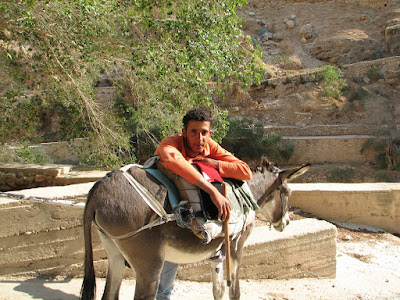

I dreamt that I was trying to squeeze my body through a small space in an intricately patterned wrought iron panel on an open window. Of course my task was impossible and I turned to a companion and said "you know, I used to be able to do this." I don't I think I meant that earlier in my life I was a contortionist, but that I was able to get to the other side of the bars and quite often found myself in that space, on the other side. I can't help but view this dream as a celebration of sorts that I am no longer able to easily slip into and behind those old and well known mental/physical/emotional bars that kept me imprisoned in so many ways for so many years. Not that I've discovered total freedom from all restrictions in my advancing age, but I think I can acknowledge a measurable leap beyond the countless restrictions that held me back, way back, from truly feeling alive and happy and yes, quite literally, from functioning in this world. The dream was filled with the theme of freedom and liberation. Freedom from addictive behavior, destructive behavior, learning to say no to life and learning to say yes, listening to my intuition and trusting what I feel in my gut, healthy boundaries, becoming pro-active in my own mental and physical health, and so much more. Something as simple as learning how to exercise patience has been a lesson decades in the learning for me. Learning to stay in that place of calm instead of reacting. Recognizing when I'm reacting, when I create scenarios in my mind that have nothing to do with anything remotely real, especially negative predictions about anything having to do with the future. Learning that quite often my near obsessive infatuations were a desperate grasping at others who were totally unavailable to me emotionally because they represented the love I never got from my father, who was totally unavailable to me emotionally (a WW II PTSD sufferer). Those extremely important, basic childhood needs that are left unfulfilled can haunt us for a lifetime if we don't process them and come to an understanding and deep awareness of them. No blame involved, but we need to explore those elements that comprise our dark side.
James Hollis writes: "The long-term neglect of the self will manifest itself somewhere, perhaps in physical illness, or depression, or more commonly in that crankiness that is the leakage of repressed anger. The difficult task is to balance one's own need for personal freedom and personal growth with the needs of others. It is never easy to find such a balance, but the failure to try will ensure burnout, resentment, and depression, which is typically anger turned inward. However great one's sense of responsibility, no good fruit comes from such a contaminated tree."
Like many others, I am drawn both to the masterpieces and the tragic life of Vincent van Gogh. The above photos were taken at the asylum St. Paul de Mausolee in St. Remy, Provence (except the first one, which is a *studies after* painting). He painted several paintings through the bars of his window as well as the grounds, the courtyard, and surrounding countryside (he also was hospitalized in Arles where he lived and painted). I've read that in his worse moments of madness (whether from a rare form of epilepsy or a severe case of bipolar illness, or both, combined with the high content of lead undoubtedly in his system from eating his paints) he wasn't able to paint. It was during his more lucid moments when there was a degree of clarity going on that he painted prolifically, some 200 paintings in one year alone. From van Gogh's small room I gazed out, through the iron bars, onto the green landscape, and tried to imagine the darkness that imprisoned him (recall St. John of the Cross). The deep, dark pain of his life compared to the brilliant bright light of his Provence paintings illustrates the profundity of his short, tragic life.
Hollis writes: "Just as there is a progressive energy at work within us, so there is a very conservative power that seeks to limit growth by limiting vulnerability. As all growth requires facing what we fear, we naturally learn patterns that protect against the fear. If we cannot speak the truth, our truth, to ourselves, we will be unable to speak it to the world either. Speaking it to the world requires that one learn to speak it to oneself first, and then to realize that our truth is who we are. To deny the complex truth we embody is more than a personal wound--it is a wound to the world by our refusal to participate in it, a reluctance to add our unique aspect to the whole. Seen in that light, it may fuel each of us to risk greater disclosure of who we are, for we are brought here to add our small portion of the truth to the world, our uniquely colored chip in the larger mosaic of being."
Hours can turn to days when sitting in front of an easel, brushes in hand, paints spread out before you, trying to produce a rendition of a favorite painting and trying to capture the emotions expressed on canvas by the artist, trying to see the world through his eyes, trying to feel her deepest emotions, find his vision, see her view out onto the landscape of life, all the way down to the study of the brushstrokes. It can be intense (and great fun).
Hollis writes: "Feeling good is a poor measure of a life, but living meaningfully is a good one, for then we are living a developmental rather than a regressive agenda. We never get it all worked out anyway. Life is ragged, and truth is still more raggedy. The ego will do whatever it can to make itself more comfortable; but the soul is about wholeness, and this fact makes the ego even more uncomfortable. Wholeness is not about comfort, or good, or consensus--it means drinking this brief, unique, deeply rooted vintage to its dregs."
"Every day the world is full of clues as to the will of the soul, if we are willing or desperate enough to begin to pay attention. If and when we do begin to take this inner life seriously, our locus of sensibility, our psychic gravity, begins to change. From this internal change, profound changes of the outer world become possibilities."
"Even when surrounded by many others, your journey is solitary, for the life you are to choose is your life, not someone else's. Alone, we nonetheless move amid a community of other solitudes; alone, our world is peopled with many companions, both within and without. Thus, this paradox stands before each of us, and challenges: We "must be alone if (we) are to find out what it is that supports (us) when we can no longer support (ourselves). Only this experience can give (us) an indestructible foundation.* Finding what supports you from within will link you to transcendence, reframe the perspectives received from your history, and provide the agenda of growth, purpose, and meaning that we all are meant to carry into the world and to share with others. The soul asks each of us that we live a larger life. Each day this summons is renewed
and leaves you, unspeakably, to sort out
your life, with its fearsome immensities,
so that, now boundaried, now limitless,
it transforms itself as stone in you and star.**
*Jung, Psychology and Alchemy, CW 12, para 32.
** Rilke, "Evening," II. 9-12, (author's translation).



























